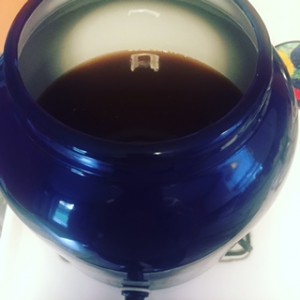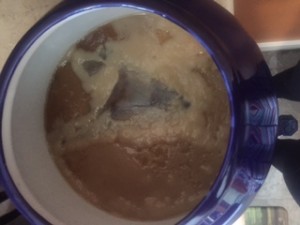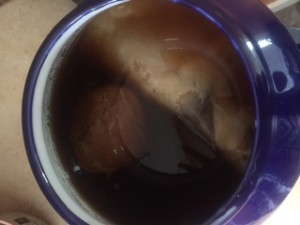The gut is the very core of our health. It digests, absorbs, transports and breakdowns food into nutrients so that your body can absorb what it needs to get the vitamins, minerals and energy it requires to survive daily. The gut alone is home to trillions of bacteria that work hard every day to keep out foreign invaders. If compromised, it can wreak havoc on our entire body, mind and well being. The gut is also responsible for 70% of our immune system, which makes it extremely important to keep it healthy. More and more research is emerging making the connection between what we eat and how we feel. In fact, Our gut is recognized as our 2nd brain! Therefore, what we eat effects how we feel and how we feel affects what we eat. Keeping a healthy gut, can help keep a healthy brain. Below are tips to help protect the relationship between your gut and your brain.
Avoid Added Sugar. Too much sugar can promote the amount of unhealthy bacteria in your gut and lead to an overgrowth of bacteria. Avoid foods with added sugar such as soda, candy, sweets and other sweetened beverages. Minimize your intake of refined grains such as white bread, pasta and rice. Read labels and remember that 4g sugar in a food or beverage is equivalent to 1tsp. Keep your added sugar intake down to no more than 6 tsp per day or 24g.
Boost your intake of Probiotics . Probiotics help promote healthy gut bacteria. With the overuse of antibiotics, we can comprise our gut health by wiping clean the healthy bacteria that protects us from foreign invaders. Probiotics can promote a healthy gut, which helps to promote a healthy mind. They can be taken in pill form or in many fermented foods such as yogurt, kefir, sour cream, kombucha (recipe info below), kimchi and sauerkraut. If taking in pill form we like Microbiome Labs Sporebiotic
Increase your Fiber and prebiotic Intake. Fiber helps to promote regularity. It is important to include 35-50 grams per day for digestive health! Prebiotics are a type of fiber that serve as food for the probiotics living in our guts. Prebiotics are fermented by the good gut bacteria to help fuel the cells in the colon to enhance gut flora. The more prebiotics we have, the more food the probiotics have to survive. Good sources of fiber include fruits, vegetables, whole grains and beans. More specifically, to boost your prebiotic intake, include the following; chicory root, garlic, onions, leeks, asparagus and bananas.
Eat Whole Foods. Include foods that come from the Earth, not from a Laboratory. This includes animal products. Afterall, we are what they eat. Avoid animal products fed hormones and antibiotics, as we already discussed, our guts need less. Enjoy more plant based foods and colorful foods for a boost of phytonutrients and antioxidants, both beneficial for the gut and the brain. Include a wide variety of plant based fats such as extra virgin olive oil, unrefined organic coconut oil, nuts, seeds and avocados. Sixty percent of your brain is fat, so fuel it with the right fat to keep it healthy and sharp.
Meditate and breathe. How many times have you heard the phrase “go with your gut” or recognized that when you are feeling anxious, you feel “butterflies” in your stomach? Well, there is a science and connection to these “feelings”. When stressed, the stress response reaches nearly every cell and area of the body, including your gut. Chronic stress can lead to gut malfunction. Therefore, incorporation of breath work and meditation can calm the mind and body, leading to better gut function. Practice meditation, breathing and yoga to help engage the parasympathetic nervous system, or the relaxation response, for better gut health
Exercise. Exercise can help promote regularity by toning the intestines. Include at least 30 minutes most days of moderate activity such as brisk walking, swimming, dancing, yoga, hiking, pilates or biking. Exercise also helps to release “feel good” hormones that boost our mood. Keep in mind that anything that is good for the heart is good for the brain. Did you know that 25% of the blood from each heart beat goes to the brain? Your brain only weighs 2 to 4 lbs, so I would say 25% is pretty important! Keep moving to boost your gut and brain health!
Greek Yogurt Parfait
6 oz non-fat plain Greek yogurt
1 tsp honey or 100% maple syrup (optional)
¼ cup granola (website)
3/4 cup blueberries
1 tsp ground flaxseed or chia seeds
In a glass bowl or cup, layer the above in the following order to form 3 layers: Yogurt, honey, granola, blueberries, and ground flaxseed.
Serves 1.
***Try making homemade kombucha! I generally use the recipe from wellness mama and love it. It is easy and all you need are a few ingredients to get started and you are all set! Kombucha is great for gut health! Below is the start and then as it begins to ferment. Fun to watch grow!
Beginning stages of brewing kombucha. Day 1.
Day 21 ready to dispense into bottles for second fermentation process.
My original scoby grew into a second one and have made a second batch for my continuous kombucha brew!





